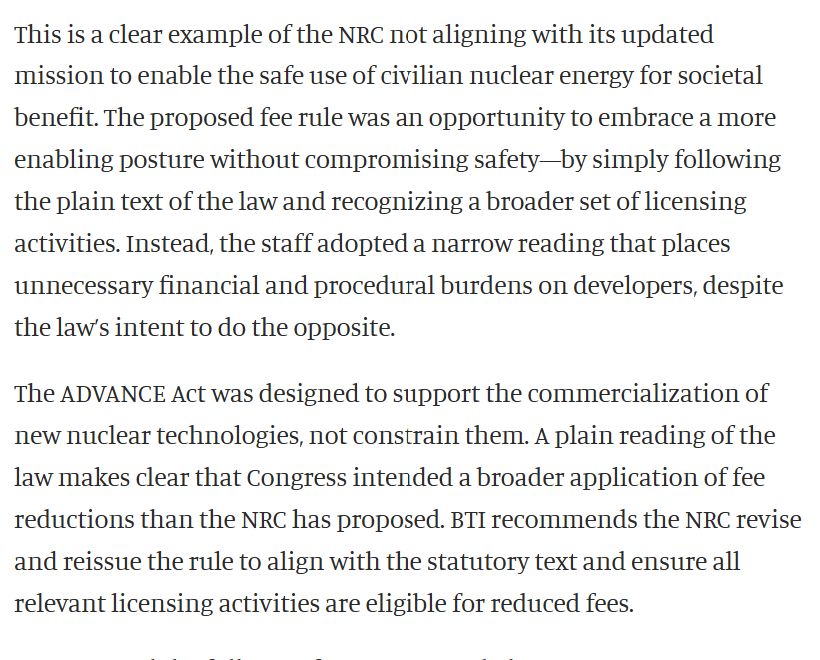Vogtle cost overrun was 100%. Blaming nuclear's overruns and delays on the NRC is like blaming a drunk driver's car wreck on the DMV. 🧵 #NuclearIsItsOwnWorstEnemy
Replies
"NuScale… spent $500 million and 2 million hours of labor over several years just to get its design approved." Fact check: FalseAF🧵
\Damn that NRC.\ “They were clueless.” "Since Shaw Modular had no welding standard in place, it needed to hire a degreed welding engineer with nuclear experience. 'I asked about it, and they laughed at me.'” —Christopher Hartz, former nuclear procurement QA manager, Shaw Nuclear Services
The updated fee rule, as initially proposed, was unworkable. It was not even close to following the letter of existing laws and regulations - including the Atomic Energy Act, NEIMA, and the ADVANCE Act. As proposed, only a handful of licenses would qualify thebreakthrough.org/issues/energ...
We provided substantive comments that identified the specific issues in the proposed rule, legal context, and provided solutions. Many of those issues were addressed in the final rule.
This was the first test of the NRC following its updated mission statement, and it went in the opposite direction. It is unfortunate that the NRC was so far off the mark that such in-depth comments were necessary.
Several other groups helped as well. @ClearPathAction also submitted a substantive comment and collaborated. @KairosPower for supporting both of our comments. @ThirdWayEnergy and @theNIAorg provided supporting comments.
Link to the FRN www.federalregister.gov/documents/20...


